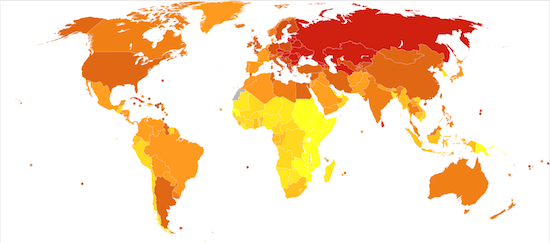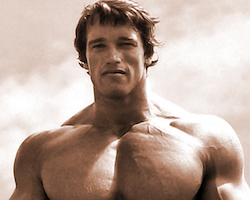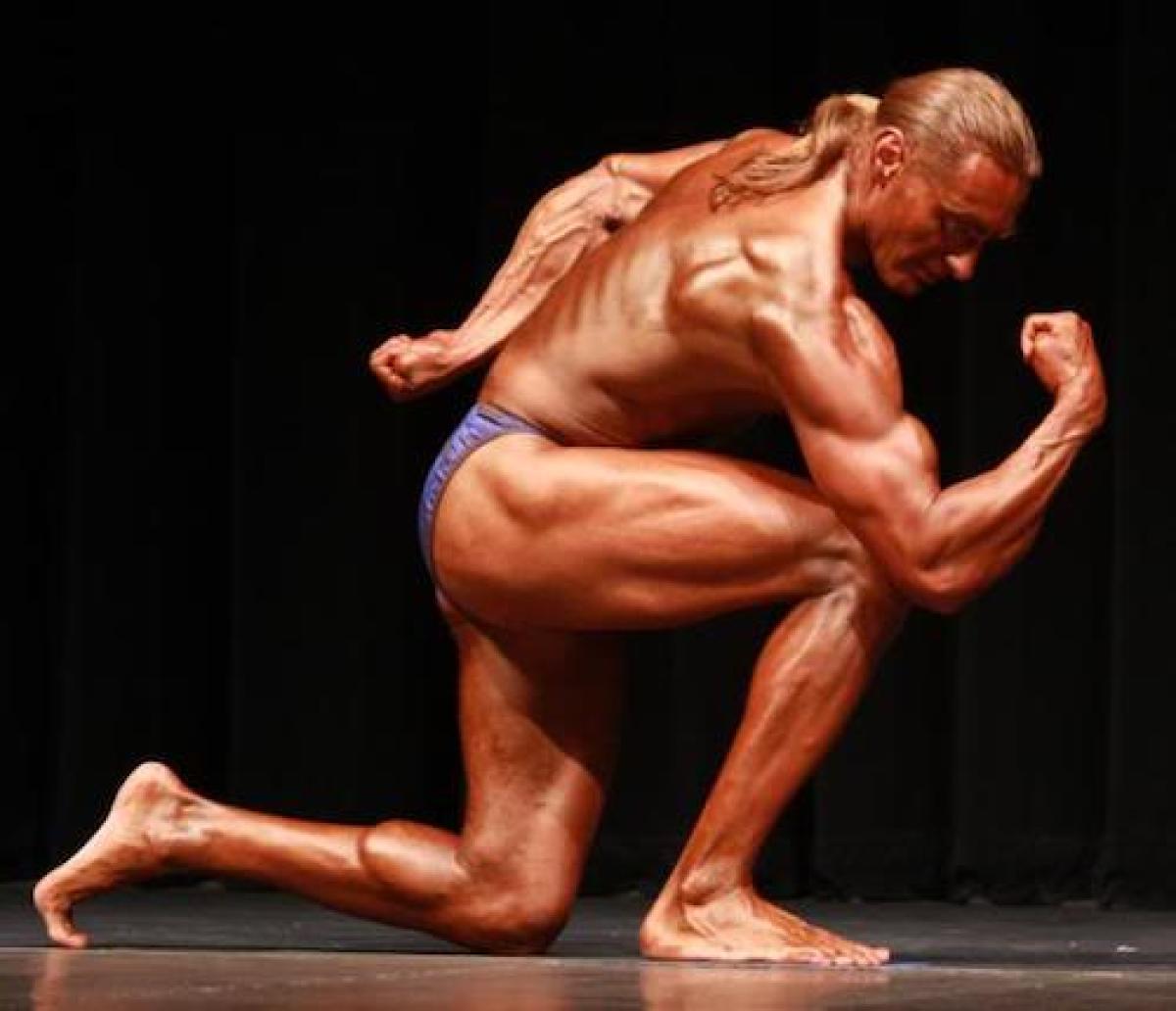Is natural selection making humans healthier?
Submitted by
GabriellaGrade level
10Answered by
Karla MoellerGreat question. Health problems are a major issue for survival. Heart disease is the leading cause of death worldwide. Other health problems, like stroke and lung cancer, also cause many more deaths than non-health related accidents. So it would seem to make sense that as we continue to evolve, any mutation that decreases these health problems would eventually spread through the population, making humans healthier with each generation. If you imagine this continuing, this should eventually lead to a perfect population of healthy, super long-lived humans...right?

If natural selection were acting on life span, that idea might be true. But natural selection does not directly select for long life. Instead, it selects for traits that help organisms have more offspring. If a trait increases the number of offspring an organism has, that trait appears in greater numbers in the next generation. Because those offspring have that trait as well, they will also have more offspring and pass the trait on to a higher than average number of individuals. This trend continues until a trait spreads through a population over many, many generations.

Now, human reproductive success decreases noticeably for both men and women after around age 30 or 40. Most cases of heart disease, stroke, and cancer occur after that age. This means that those diseases may not have much effect on reproductive success. Because of this, those diseases cannot be actively selected against. Someone could have many, many children before starting to have problems with heart disease, for example. So it is difficult to weed those diseases out of a population.
In fact, there is the possibility that traits or genes that cause some diseases may actually be favored by natural selection. For example, high levels of testosterone in men may increase reproductive success early in life. However, those same high levels of testosterone increase risk for prostate cancer. Because natural selection acts on reproduction, not life span, high levels of testosterone are likely to be favored. While this would help males have more children, it could also cause an increase in rates of prostate cancer. This is an example of what we call antagonistic pleiotropy.
When two things are antagonistic, that means that they work against each other, or oppose one another. Pleiotropy is when one gene influences two or more traits. Put together, antagonistic pleiotropy occurs when a gene influences more than one trait, when one of those traits is beneficial to an organism and one of the other traits influenced by that gene is harmful. The effect of testosterone shows this perfectly: high testosterone can increase reproductive success, but decrease life span in the same person.

So to get back to the main question, natural selection can make us healthier, but only if that increase in health is increasing our ability to reproduce. Natural selection acts on reproductive ability, so if health problems occur after someone is too old to reproduce, natural selection won’t usually act on that problem. There may be an exception to this rule, though.
Grandparents can be an important factor in the number of children a family raises. If a mother has more support (from her parents) in raising children, she may be able to have more children. Measuring reproductive success as the full success of extended family is called “inclusive fitness”. If grandparents living into old age can improve the reproductive success of a family, it is possible there could be some selection for a trait that increases life span. However, in general, natural selection does not make us healthier directly; instead, it acts on traits that makes us more successful in reproduction.
Additional images via Wikimedia Commons. Vegan body builder thumbnail by Mikkei.
Bibliographic details:
- Article: Is natural selection making humans healthier?
- Author(s): Karla Moeller
- Publisher: Arizona State University School of Life Sciences Ask A Biologist
- Site name: ASU - Ask A Biologist
- Date published:
- Date accessed:
- Link: https://askabiologist.asu.edu/natural-selection-humans
APA Style
Karla Moeller. (). Is natural selection making humans healthier?. ASU - Ask A Biologist. Retrieved from https://askabiologist.asu.edu/natural-selection-humans
Chicago Manual of Style
Karla Moeller. "Is natural selection making humans healthier?". ASU - Ask A Biologist. . https://askabiologist.asu.edu/natural-selection-humans
Karla Moeller. "Is natural selection making humans healthier?". ASU - Ask A Biologist. . ASU - Ask A Biologist, Web. https://askabiologist.asu.edu/natural-selection-humans
MLA 2017 Style

Be Part of
Ask A Biologist
By volunteering, or simply sending us feedback on the site. Scientists, teachers, writers, illustrators, and translators are all important to the program. If you are interested in helping with the website we have a Volunteers page to get the process started.
